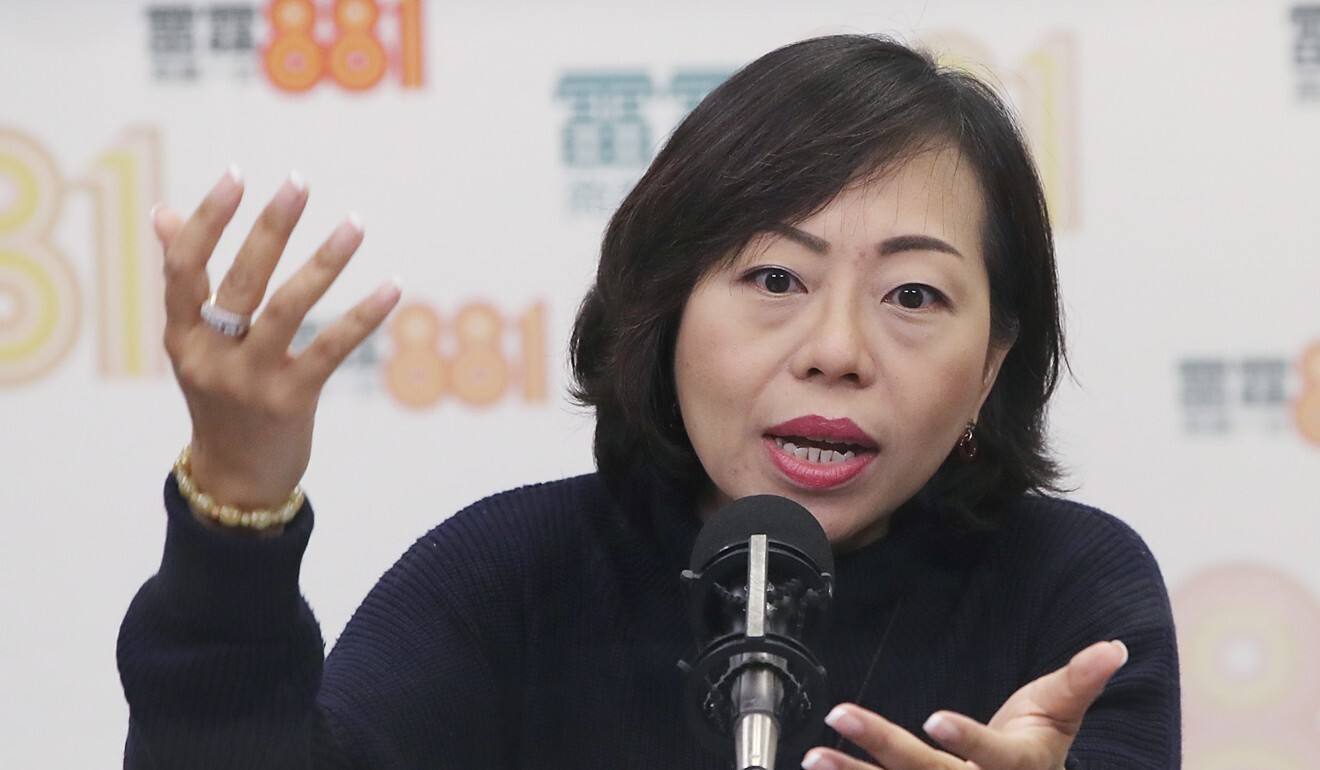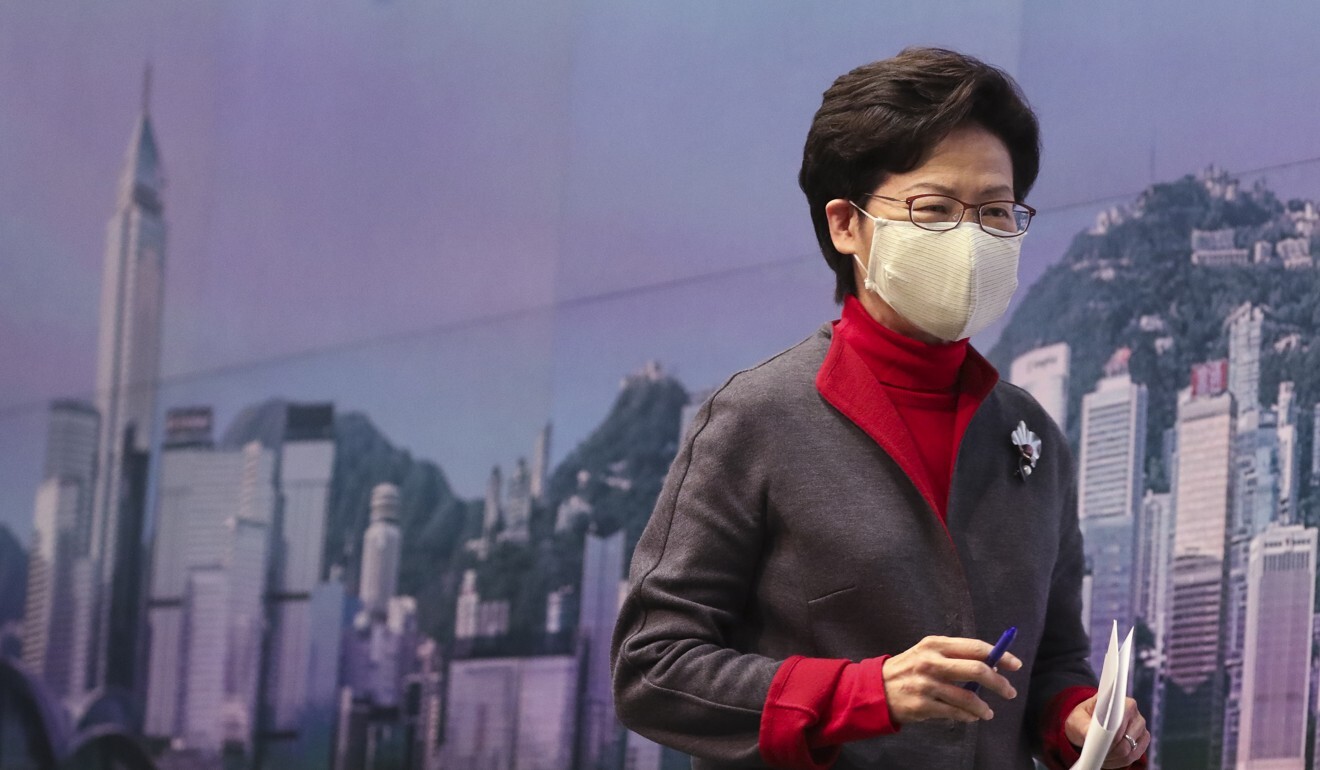
Bill to better protect residents of Hong Kong’s subdivided flats in works, leader Carrie Lam says
- Move comes following expert panel’s suggestion for rent controls in subdivided units and a standard tenancy agreement to protect poor families
- Lam also agrees to allow a legislator to introduce a private member’s bill for amending a law to prevent landlords from overcharging tenants for water

The Hong Kong government this year plans to introduce a bill in the Legislative Council that will better protect residents living in subdivided flats, the city’s leader has said.
Chief Executive Carrie Lam Cheng Yuet-ngor also agreed to allow pro-establishment lawmaker Alice Mak Mei-kuen to introduce a private member’s bill – a move rarely seen when the opposition camp was still in Legco – to amend a law to prevent landlords from overcharging tenants for water.
“I hope this move will reflect my respect for the constitutional functions of Legco and my willingness to take on members’ proposals,” Lam said.
The announcement came after a government-appointed task force studying policies for subdivided flats indicated rent controls should be reintroduced and a standard tenancy agreement imposed to protect poor families. It is due to make its recommendations in March.
“After months of discussions and study, the [task force] agrees in principle that the government should implement suitable tenancy control on subdivided units to safeguard the interests of grass-roots tenants, while carefully balancing the interests of landlords,” Lam said.
The government would draft a bill, taking into account the suggestions of the task force and legislators, she added.
Earlier, sources told the Post that the expert panel had agreed a standard contract – setting out the rights and obligations of the landlord and the tenant – should be drafted. It was considering whether to introduce priority renewal rights for tenants and capping rent rises at 15 per cent. But no consensus had been reached on that point yet.
Mak said more was needed to be done to ensure tenants were not exploited.
“We need to protect tenants of subdivided flats from being exploited,” she said. “They are very vulnerable and don't have much bargaining power so we need to have some sort of regulation to protect them from being overcharged.”

She stressed her amendment of the Waterworks Regulations would make clear landlords could only charge the amount they paid to the government for water.
“According to the [current] regulations, someone can charge another person for the cost of water,” she said. “Usually the landlord will say that the cost of water includes not only the charges paid to the government but also the cost of providing water facilities.”
A person familiar with the task force’s work said discussions on how to deal with landlords who overcharged for utilities had been continuing but their recommendations could not be revealed as the report was incomplete.
“The chief executive approving Mak’s private member’s bill is likely going in the same direction as the task force’s recommendation,” the insider said. “It’s just about what way, or legal basis, is used to tackle the issue of overcharging for water and electricity.”
The source added that regulating electricity charges could be done by amending the Electricity Ordinance or laying out conditions in a standard contract.
“Amending the Electricity Ordinance will affect power companies, so it may be a bit more complicated. But if a standard tenancy agreement for subdivided flats is introduced, regulations on electricity charges can be laid out in the conditions of the contract, which would comprehensively address the issue,” the insider said.
Asked whether Lam’s approval of the bill was an olive branch to her following a fallout over the administration’s handling of the now-withdrawn extradition bill that sparked months of anti-government protests, Mak said it was a gesture by authorities to show their concern about livelihood issues.
“This is a more pragmatic way to handle it, and we should not wait any longer,” she said. “I think this is a very good sign to show the government cares about people.”

In a closed-door meeting in 2019, Mak hurled expletives at Lam when the chief executive tearfully explained her decision to suspend the extradition bill. Members of the pro-establishment camp, who had thrown their support behind the bill, said the decision embarrassed them and would hurt them in the polls.
Under Article 74 of the Basic Law, the city’s mini-constitution, lawmakers can introduce private member’s bills – which do not relate to public expenditure, political structure or the operation of the government – to the legislature. But bills that relate to the government’s policies must receive written consent from the chief executive before they can be put forward.
Former opposition lawmaker Andrew Wan Siu-kin said he supported Mak’s bill, noting that all political parties wanted to address the issue of overcharging for utilities, but accused the government of favouring the pro-establishment camp.
“Previously, our recommendations on the issue were rejected or ignored. But the private member’s bill was approved by the chief executive to give credit to the pro-Beijing camp for the amendment when only they are present in the Legislative Council,” he said.
“It’s like the government is helping them earn good marks on their report card to show people in the run up to elections.”
Subdivided flats are often found in rundown buildings, and are regarded as the last housing resort for the needy.
The average waiting time for a flat in public housing in Hong Kong is 5.6 years, according to the latest figures from the Housing Authority. Many in the queue have no choice but to live in subdivided flats during the long wait.